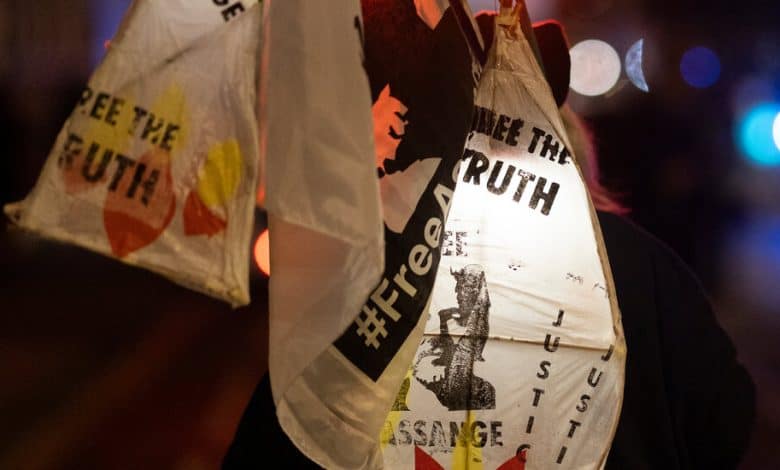The Extradition of Julian Assange Threatens Press Freedoms

Fourteen years ago, at a human rights conference in Oslo, I met Julian Assange. From the moment I encountered the wraithlike WikiLeaks founder, I sensed that he might be a morally dubious character. My suspicions were confirmed upon witnessing his speech at the conference, in which he listed Israel alongside Iran and China as part of a “rogue’s gallery of states” and compared the Guantánamo Bay detention facility to a Nazi concentration camp.
Nothing Mr. Assange has said or done in the intervening 14 years has altered my initial impression of him as a man unhealthily preoccupied with the shortcomings of democracies and suspiciously uninterested in the crimes of dictatorships. In the months following our meeting, WikiLeaks published hundreds of thousands of U.S. diplomatic cables and military files, collectively constituting the largest leak of classified government documents in history.
Though Mr. Assange insisted that his purpose was to expose American abuses, the leaks were also a boon to the Taliban and other authoritarian forces around the world. According to two journalists working for The Guardian, one of the newspapers that collaborated with WikiLeaks in the initial publication of these documents, Mr. Assange had to be convinced to redact the names of Afghan civilians who had cooperated with the American military. “Well, they’re informants,” Mr. Assange defiantly told them. “So if they get killed, they’ve got it coming to them. They deserve it.”
The clearest example that Mr. Assange is something less admirable than the radical transparency activist he and his supporters purport him to be is his friendly relationship with the Russian government. In 2012, Mr. Assange hosted a talk show on RT (formerly Russia Today), the Kremlin-funded propaganda network that beams conspiracy theories and anti-Western narratives around the world. The following year, WikiLeaks played a crucial role in helping the fugitive National Security Agency leaker Edward Snowden seek asylum in Moscow. And during the 2016 U.S. presidential election, while WikiLeaks worked with Russian intelligence to publish reams of hacked materials designed to damage the campaign of the Democratic nominee, Hillary Clinton, the site refused to publish “a wide-ranging trove of documents” from the Russian government detailing Moscow’s ongoing military and intelligence activities in Ukraine.
I had no sympathy for Mr. Assange when, facing extradition to Sweden on sex crime charges in 2012, he holed up in the Ecuadorean embassy in London. Mr. Assange denied those charges, claiming that they were a pretext to extradite him onward to the United States, where a grand jury had been impaneled to determine whether his receipt and publication of leaked government documents violated U.S. law. It was not until April 2019 that the Department of Justice would finally unseal an indictment against Mr. Assange, charging him with conspiring to hack Pentagon computers. By that point, Mr. Assange had overstayed his welcome with his long-suffering Ecuadorean hosts, who forfeited him to British police.
While Mr. Assange may well have committed a crime by assisting the former U.S. soldier Chelsea Manning to break into government computer systems in 2010, a superseding indictment handed down a month after his arrest and charging him with multiple counts of violating the 1917 Espionage Act — crimes for which, if found guilty, he could face up to 175 years in prison — constitutes a serious threat to the First Amendment. With Mr. Assange set to appeal his extradition to the United States this week, it is not too late for the U.S. government to reconsider this ill-advised prosecution.




